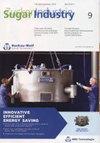基因组编辑在甜菜中的挑战和潜在应用
IF 0.2
4区 农林科学
Q4 FOOD SCIENCE & TECHNOLOGY
引用次数: 0
摘要
基于CRISPR/Cas(聚集规律间隔短回文重复序列/CRISPR相关蛋白)的基因组编辑(GE)正在迅速发展,用于包括植物在内的真核生物的基因靶向。基于CRISPR/ cas的基因组编辑具有精准性、靶向性、无转基因、可遗传、可在短时间内实现多重靶标修饰等特点。有几个成功应用转基因技术提高作物生产力的例子。然而,基因组编辑工具尚未用于甜菜,以解决诸如非生物和生物胁迫对作物生产的负面影响。尽管基于CRISPR/ cas的基因组编辑技术不断取得进展,但通过同源DNA重组(homologous DNA recombination, HDR)进行精确的基因组编辑(需要修饰、插入或替换性状)的效率非常低,而且具有挑战性。在这里,作者介绍了几种基于CRISPR/ cas的方法,并考虑了它们在改良作物(包括甜菜)方面的最新进展和挑战。本文章由计算机程序翻译,如有差异,请以英文原文为准。
Challenges and potential applications of genome editing in sugar beet
Genome editing (GE) based on CRISPR/Cas (clustered regularly interspaced short palindromic repeats/CRISPR-associated protein) is rapidly being developed for gene targeting in eukaryotes including plants. CRISPR/Cas-based genome editing is precise, target specific, transgene-free, heritable and enables multiplex target modification in a short time. There are several examples for successful applications of GE for improving crop productivity. However, genome editing tools have not yet been used for sugar beet to tackle the negative effects of e.g. abiotic and biotic stresses on the crop production. Despite the constant progress in CRISPR/Cas-based genome editing, the efficacy of precise genome editing through homologous DNA recombination (HDR), required to modify, insert or replace traits, is very low and challenging. Here, authors present several CRISPR/Cas-based approaches by considering recent advances and challenges for their application to improve crops including sugar beet.
求助全文
通过发布文献求助,成功后即可免费获取论文全文。
去求助
来源期刊

Sugar Industry-Zuckerindustrie
工程技术-食品科技
CiteScore
0.50
自引率
50.00%
发文量
22
审稿时长
18-36 weeks
期刊介绍:
Sugar Industry / Zuckerindustrie accepts original papers (research reports), review articles, and short communications on all the aspects implied by the journals title and subtitle.
 求助内容:
求助内容: 应助结果提醒方式:
应助结果提醒方式:


